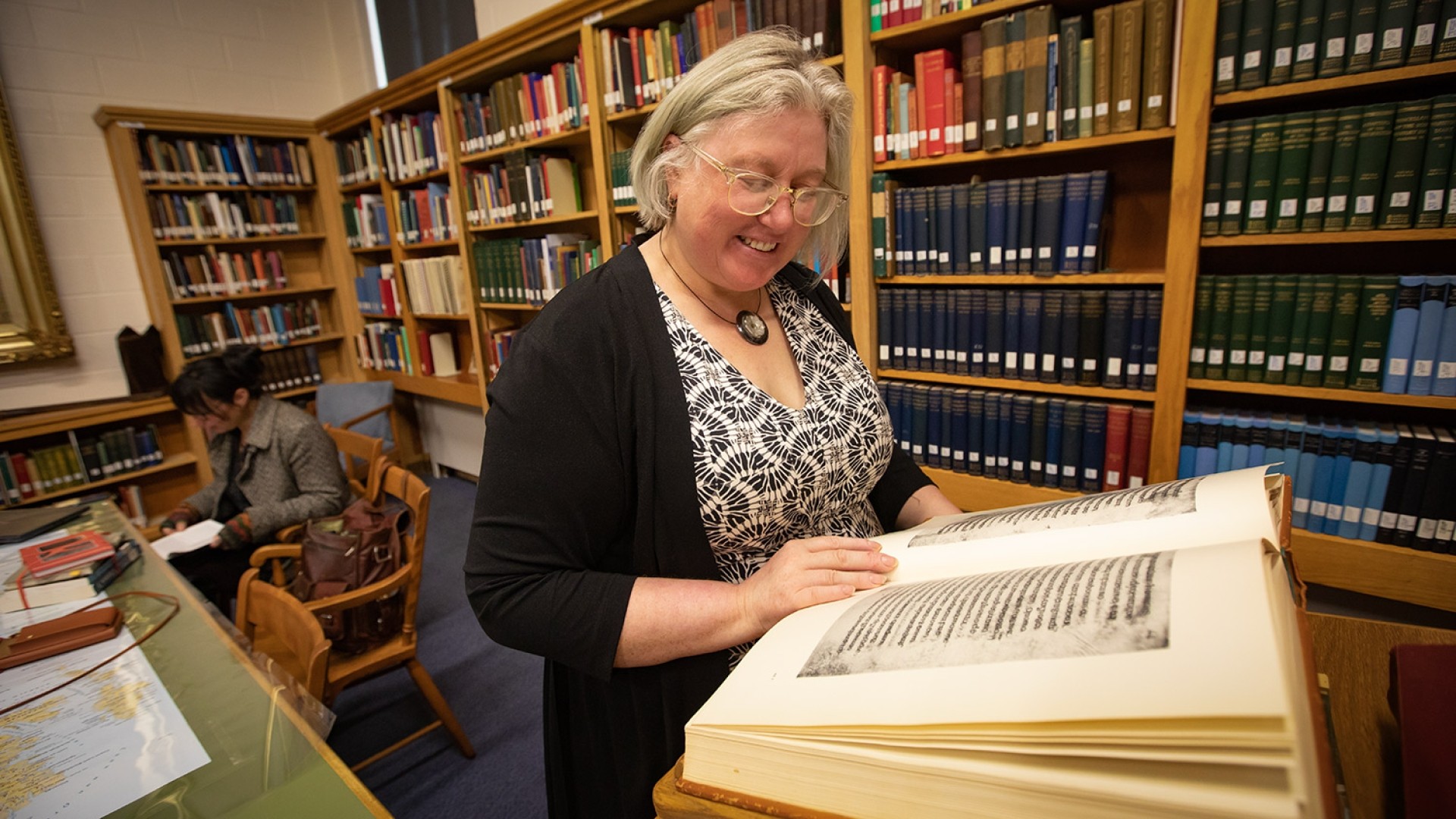
“People forget that modern science came from very old, very deep Christian ideas, some of which contain biases…There’s still that notion that you’re sick because you did something wrong, that you didn’t exercise enough or eat correctly, a notion that you are responsible for your illness.” ~ Dr. Donna Trembinski
Looking to the past to inform modern health care
Meet StFX history professor Dr. Donna Trembinski
Dr. Donna Trembinski, a medieval history professor, has taught in StFX’s Department of History for the past 15 years. Her research focuses on the intersection of religion and medicine in the 1200s. Most recently, her new book examining the life of St. Francis of Assisi through the lens of disability studies gained critical acclaim, including the Hagiography Society Book Prize for 2022, for its insights into a familiar topic. At StFX, Dr. Trembinski teaches courses around the crusades and Vikings as well as two health-related offerings, “Plagues and Peoples” and “The Medieval Body.”
In looking to the past, StFX history professor Dr. Donna Trembinski is helping add depth to our understanding of modern health care.
Take her latest work, in which Dr. Trembinski, whose research focuses on the intersection of religion and medicine in the 1200s, has shed new light on a dominant narrative around disability.
Her award-winning book, Illness and Authority: Disability in the Life and Lives of Francis of Assisi, examines the life of well-known 13th century saint, Francis of Assisi, through the lens of disability studies to help highlight barriers people may experience due to illness and chronic disease.
The book, winner of the Hagiography Society Book Prize for 2022, gained acclaim for changing the way we see Francis and his life. Celebrated for founding three religious orders, Francis also faced ill health throughout his life, a fact diminished by biographers to massage his life into a more acceptable shape, says Dr. Trembinski, whose work highlights how his impairments became barriers to wielding traditional modes of masculine authority within the Franciscan Order he founded and the church hierarchy.
It matters that Francis was infirm, she says, as we start to see how it impacted his life and ability to lead. It also shows how his early biographers managed his image by minimizing the reality of his illnesses to ensure he met the expectations his audience had for a founder-saint.
“We’re reading the saint’s life wrong. It matters,” says Dr. Trembinski.
“It’s presenting a dominant narrative around disability that is wrong.”
It is important, then as now, that we make space for people living with disabilities, she says.
IMPORTANT TO UNDERSTAND BIASES
Modern perceptions of suffering and pain are deeply rooted in the medieval past, and understanding these biases is important, she says.
“People forget that modern science came from very old, very deep Christian ideas.
“There’s still that notion that you’re sick because you did something wrong, that you didn’t exercise enough or eat correctly, a notion that you are responsible for your illness.”
Understanding these roots and knowing their cultural significance is important.
“Modern society thinks religion has no impact today, but it’s all over it. So much of how we construct modern health has its roots in Christian theology, but people don’t see it anymore.”
In her latest research, funded by the Social Sciences and Humanities Research Council of Canada (SSHRC), Dr. Trembinski is examining manuscripts that detail eye care in Italy in the High Middle Ages. She has several StFX undergraduate students involved in the work.
As part of the research, Dr. Trembinski is looking at medieval medicines to see if any ingredients or knowledge could have use in modern medicine. She is also looking to understand how Arabic medicine was introduced into western medicine.
“I do expect it will explore how some of the modern folklore has roots in medieval medicine,” she says.
She expects to find instances where Arabic knowledge is accepted completely and instances where it is rejected. She wants to understand why this knowledge was sometimes accepted and sometimes not, helping understand how knowledge was shared and transmitted.
Dr. Trembinski, a first-generation university graduate, says her path to becoming a researcher was helped greatly by good mentors who guided her and showed her that she could do things and that she could research what she loves.
She says one of the things she likes best about teaching at StFX is working with the students. “They’re smart, engaged, interested. I love the energy,” she says. She is also pleased to offer students a chance to participate in research. “Undergraduate students can do this work, and they do it well.”
As for something unexpected about herself that most people wouldn’t know? “I’m a Star Trek nerd,” she says, with a collection of over 300 Star Trek novels.

